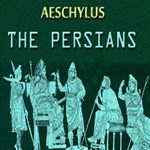- Popular Genres
-

The most popular500
-

Children400
-

Fiction750
-

Fantasy350
-

Horror/Ghost stories700
- Learn English
-

Dictionary 180,000
- Children's Fiction
-

Fiction364
-

Action & Adventure315
-

Animals & Nature275
-

Myths, Legends & Fairy Tales222
-

Family117
-

General102
-

Historical43
-

Poetry48
-

Religion37
-

School33
-

Short works52
- Children's Non-Fiction
-

Non-fiction76
-

Reference5
-

Religion19
-

Science21
-

History14
-

Biography23
- Fiction
-

General694
-

Action & Adventure603
-

Classics (Greek & Antiquity)94
-

Crime & Mystery195
-

Detective322
-

Culture & Heritage127
-

Dramatic Readings151
-

Epistolary Fiction47
-

Erotica12
-

Travel Fiction42
-

Family Life123
-

Biographies & Memoirs73
-

Historical Fiction433
-

Humorous Fiction387
-

Literary227
-

Nature & Animal63
-

Nautical & Marine97
-

Religious Fiction109
-

Romance477
-

Sagas16
-

Satire127
-

Sports Fiction9
-

Suspense & Espionage79
-

War & Military Fiction89
-

Westerns98
- Fantastic Fiction
-

Fantastic Fiction103
-

Myths, Legends & Fairy Tales178
-

Horror & Supernatural Fiction150
-

Gothic Fiction25
-

Science Fiction490
-

Fantasy Fiction83
- Short Stories - Fiction
-

Short Stories260
-

Anthologies37
-

Single Author Collections142
- Fiction by year
-

Published before 180020
-

Published 1800-1900207
-

Published 1900 onward207
- Non-Fiction
-

Non-Fiction427
-

War & Military170
-

Animals62
-

Art, Design & Architecture43
-

Biography & Autobiography360
-

Memoirs187
-

Business & Economics31
-

Crafts & Hobbies15
-

Education & Mathematics28
-

Essays & Short Works177
-

Family & Relationships27
-

Health & Fitness20
-

House & Home20
-

Cooking64
-

Gardening10
-

Humor61
-

Law24
-

Medical32
-

Music33
-

Nature149
-

Performing Arts15
-

Political Science118
-

Psychology62
-

Reference16
-

Self-Help & Advice66
-

Sports & Recreation15
-

Technology & Engineering37
-

Travel & Geography177
-

True Crime49
-

Writing & Language24
- Science - Non Fiction
-

Science67
-

Astronomy, Physics & Mechanics25
-

Chemistry8
-

Earth Sciences22
-

Life Sciences40
- Philosophy - Non Fiction
-

Philosophy92
-

Ancient & Medieval30
-

Early Modern32
-

Modern & Contemporary43
-

Atheism & Agnosticism19
- History - Non Fiction
-

History256
-

Antiquity37
-

Middle Ages/Middle History36
-

Early Modern82
-

Modern (19th C)127
-

Modern (20th C)49
- Religion - Non Fiction
-

Religion63
-

Christianity - Commentary19
-

Christianity - Biographies26
-

Christianity - Other86
-

Other religions29
- Bibles
-

Bibles69
-

King James Version63
- Literary Collections - Non Fiction
-

Literary Collections34
-

Essays / Short non-fiction20
-

Letters27
- Persians (version 2)
-
 Download the book
Download the book
The earliest of Aeschylus' plays to survive is "The Persians" (Persai), performed in 472 BC and based on experiences in Aeschylus's own life, specifically the Battle of Salamis. It is unique among surviving Greek tragedies in that it describes a recent historical event. "The Persians" focuses on the popular Greek theme of hubris by blaming Persia's loss on the pride of its king. It is the second and only surviving part of a now otherwise lost trilogy that won the first prize at the dramatic competitions in Athens’ City Dionysia festival in 472 BCE, with Pericles serving as choregos. The first play in the trilogy was called "Phineus"; it presumably dealt with Jason and the Argonauts' rescue of King Phineus from the torture that the monstrous harpies inflicted at the behest of Zeus. The subject of the third play, "Glaucus," was either a mythical Corinthian king who was devoured by his horses because he angered the goddess Aphrodite or a Boeotian farmer who ate a magical herb that transformed him into a sea deity with the gift of prophecy. In "The Persians," Xerxes invites the gods' enmity for his hubristic expedition against Greece in 480/79 BCE; the focus of the drama is the defeat of Xerxes' navy at Salamis. Aeschylus himself had fought the Persians at Marathon (490 BC). He may also have fought at Salamis, just eight years before the play was performed. Summary by Wikipedia (edited by Expatriate)
